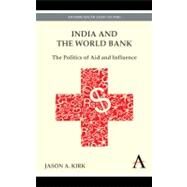India and the World Bank
, by Kirk, Jason A.- ISBN: 9780857284129 | 0857284126
- Cover: Paperback
- Copyright: 10/1/2011
'The World Bank needs India more than India needs it.' So goes an emerging consensus on both sides of the relationship between the Bank and its largest borrower. This book analyzes the politics of aid and influence, explaining but also challenging this insider view, while at the same time arguing against the popular perception that the Bank imposes its neoliberal agenda on a retreating Indian state. The Bank, struggling to remain relevant amid India's recent rapid growth and expanding access to private capital, has been caught up in a complex federal politics of economic reform and development. India's central government - far from being in retreat - has been the main driver of dramatic changes in the Bank's assistance strategy, leading toward a focus at the sub-national state level. Yet the closer the Bank's engagement with India's States, the more apparent their political, institutional, and developmental differences become. The Bank has vacillated between a 'focus States' strategy to encourage successfully reforming States, and a 'lagging States' strategy to give special assistance to those left behind by recent growth. The Indian government itself has encouraged this uncertainty, as its interests have evolved from a political strategy of selective support to reformers, to a renewed concern for regional inequalities. This timely study will be of interest to scholars, development practitioners, and engaged observers of globalization and the nation-state.







